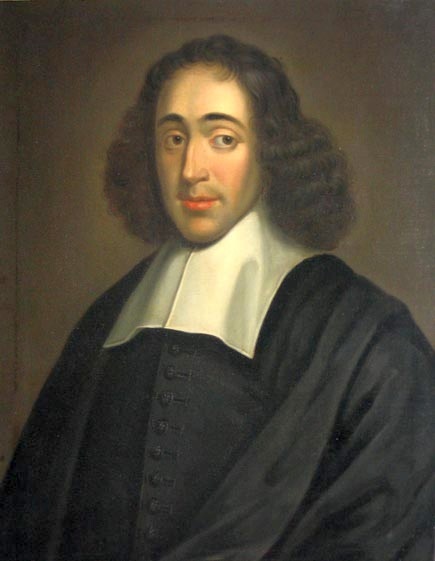Baruch Spinoza

Baruch Spinoza was a Dutch philosopher, mathematician and political thinker of the Enlightenment. His thinking has inspired many and even today his ideas are very important. So you may definitely call him a hero.
Spinoza lived from 1632-1677 and was born in Amsterdam. He was raised Jewish, but gradually he turned more and more against his faith and all associated regulations, holidays and dietary laws. The Talmud and Torah he called "inventions of the human imagination." The rabbis saw this with dismay to.
From the middle of the 17th century, people began to think critically about the pure truth and about what was true and what was untrue in the Bible.
Spinoza was engaged in philosophy, morality and musings on the theory of the immortality of the soul. RenГ© Descartes has had a major influence on Spinoza, through his extensive writings about body and soul.
Spinoza had many doubts about God and the Bible and placed particular emphasis on the importance of a virtuous life. He denied the miracles of Jesus and accepted no other explanation than that based on the reason. According to Spinoza, miracles are not proof of divine power, but of human ignorance. Spinoza was accused of heresy and was therefore rejected from the Sephardic community on 27 July 1656. This meant, among other things, that he was not allowed to have contact with his family anymore.
In 1670 Spinoza published (anonymously) the вЂTractatus theologico-politicus’, which is the oldest plea for freedom of speech that we know. In the Tractatus theologico-politician Spinoza pleads for an independent judiciary and gives arguments for religious freedom and tolerance. In 1674, the script is banned in the Netherlands.
The lifework of Spinoza is вЂEthics, ordine geometrico demonstrata’. Although ethics is the main subject, it is equally a work on metaphysics. Spinoza followed Descartes in his idea that mathematics is an example for the philosophy.
On February 21, 1677 Spinoza died of tuberculosis. After his death, there is still much interest in his work. On the end of the 18th century the interest in Spinoza's philosophy grew. Spinoza's writings have therefore also influenced the German realism and German Romanticism.
Many great philosophers after him, such as Goethe and Hegel, but also Albert Einstein and the Dutch writer Multatuli admired his ideas highly.
In the twenties of the 20th century the interest in Spinoza’s ideas rose again, and after the Second World War there was again a growing interest in Spinoza. And now Spinoza still is an important man. In 2007 he was included in the Canon of the Netherlands, which means he has to be mentioned in history lessons at Dutch schools.
За контакт/fuer Kontakt: helden_und_heilige@abv.bg





